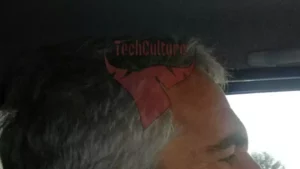Koi Nation’s Casino Quest Faces Opposition in Northern California
The Koi Nation, a small, landless tribe in Northern California, is pursuing its mission to establish a casino on newly acquired land, following a 2019 federal court ruling that paved the way for a significant land purchase. In partnership with the Chickasaw Nation, owners of the world’s largest casino, the Koi Nation awaits a crucial decision from U.S. Department of Interior Secretary Deb Haaland regarding their 68-acre parcel in Sonoma County, bought for $12.3 million in 2021.
This development is part of the U.S. government’s ongoing efforts to address historical injustices against Indigenous peoples. The federal legal process for reinstating ancestral lands requires tribes to demonstrate “a significant historical connection to the land.”
However, the Koi Nation’s plans for the Shiloh Resort and Casino, which include a 2,500-slot machine casino and a 400-room hotel, face mounting opposition from other tribes and California Governor Gavin Newsom. The project’s proximity to existing Native American casinos, such as the Graton Resort and Casino and River Rock Casino, has sparked controversy.
Dino Beltran, Vice Chairman of Koi Nation’s Tribal Council, emphasizes the potential for improved living conditions and educational opportunities for tribe members. However, critics like Greg Sarris, chairman of Graton Rancheria, argue that the Koi Nation lacks a legitimate historical connection to Sonoma County, accusing them of “reservation shopping.”
The Indian Gaming Regulation Act of 1988 governs Native American casino operations, with a “restored lands” exception for tribes without reservations. The Koi Nation asserts that their ancestors lived in Northern California for thousands of years, and the U.S. government approved land for their rancheria in 1916, though it was later declared uninhabitable.
Michael Anderson, the Koi Nation’s attorney, defends the tribe’s legal case, while Sarris and local politicians, including Governor Newsom, maintain their opposition. The Department of the Interior is currently evaluating several land trust applications under the “restored lands” exception, including those from the Scotts Valley Tribe, Coquille Indian Tribe, and Guidiville Rancheria tribe.
Secretary Haaland’s decision will need to balance opposition to the casinos with considerations of tribal self-determination, self-governance, and economic development. California, home to 110 federally recognized tribes and 87 tribal casinos, represents the largest tribal gaming market in the country. The Koi Nation’s proposal enters an increasingly competitive landscape in a potentially untapped market.
As the decision looms, the case highlights the complex interplay of historical justice, economic opportunity, and inter-tribal relations in the evolving landscape of Native American gaming in California.





